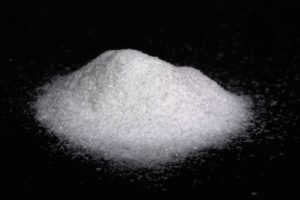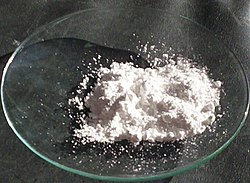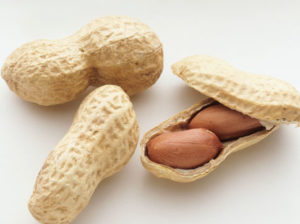 Once again, those wondering about the chemicals lurking inside us have bad news. In a long-running study, researchers tested 201 young children (aged 2 to 4 years old) and found that all of them have many dangerous chemicals ("chemicals of concern") in their bodies. Some of the chemicals were in higher levels in the children than in their mothers during pregnancy.
Once again, those wondering about the chemicals lurking inside us have bad news. In a long-running study, researchers tested 201 young children (aged 2 to 4 years old) and found that all of them have many dangerous chemicals ("chemicals of concern") in their bodies. Some of the chemicals were in higher levels in the children than in their mothers during pregnancy.
In this study pregnant women from 4 states had their urine analyzed, and later the urine of their children when they were 2 to 4 years old. The testing of blood and urine from a person and looking for certain chemicals is called biomonitoring.
The researchers only looked for 111 chemicals and found that at least 5 children had 96 of them detected in their urine. Over 50% of the children had 48 chemicals detected. Thirty four of the chemicals were detected in over 90% of the children. But keep in mind that they only looked for a limited number of chemicals. Some of the chemicals found are not being monitored in adult biomonitoring. Many chemicals we are routinely exposed to, such as the common pesticide glyphosate (found in many non-organic foods) were not looked at.
 One trend the researchers found is that levels of 2,4-D (pesticide used as a herbicide or weed-killer) are trending upwards over time. This is because 2,4-D is commonly used as a weed-killer on lawns (including Feed and Weed) and elsewhere, but it is also used on genetically modified crops.
One trend the researchers found is that levels of 2,4-D (pesticide used as a herbicide or weed-killer) are trending upwards over time. This is because 2,4-D is commonly used as a weed-killer on lawns (including Feed and Weed) and elsewhere, but it is also used on genetically modified crops.
The 111 chemicals tested for are from the foods and beverages children (and adults) ingest, personal care products (e.g., soap, lotion), the chemicals used in the home (e.g., pesticides, cleaning products) or chemicals outgassing from products used in the home (e.g., from non-stain synthetic rugs, plastic toys, vinyl floors). Children are exposed to the chemicals when they breathe indoor and outdoor air, eat food, touch surfaces or objects - both indoors and outdoors.
Bottom line: Eat as many organic foods as possible (pesticides such as 2,4-D and glyphosate are not allowed in organic food production). Additional tips: Lifestyle tips for avoiding harmful chemicals.
Excerpts from Science Daily: Researchers tested 200 toddlers — 96 chemicals were lurking in their bodies
A national study published in Environmental Science & Technology finds children aged 2 to 4 years in the United States are routinely exposed to a broad range of potentially harmful chemicals. Many of the chemicals the researchers identified are not routinely monitored and may pose health risks. ...continue reading "Chemicals of Concern Found In the Bodies of Young Children"

 For years I heard health care providers recommend to persons worried about or with type 2 diabetes to only consume water, unsweetened coffee or tea, or zero calorie artificially sweetened beverages, including soda. Well, it turns out that artificial sweeteners have all sorts of harmful health effects, with different sweeteners (e.g.,
For years I heard health care providers recommend to persons worried about or with type 2 diabetes to only consume water, unsweetened coffee or tea, or zero calorie artificially sweetened beverages, including soda. Well, it turns out that artificial sweeteners have all sorts of harmful health effects, with different sweeteners (e.g., 

 Many people (even health professionals) are still under the impression that dairy products made from milk are unhealthy. NOT TRUE. Consuming dairy products, especially whole milk products, is
Many people (even health professionals) are still under the impression that dairy products made from milk are unhealthy. NOT TRUE. Consuming dairy products, especially whole milk products, is Typically, our vitamin D levels drop in the winter months when we don't get as much sun exposure. After all, it is called the sunshine vitamin. However, a new
Typically, our vitamin D levels drop in the winter months when we don't get as much sun exposure. After all, it is called the sunshine vitamin. However, a new 

